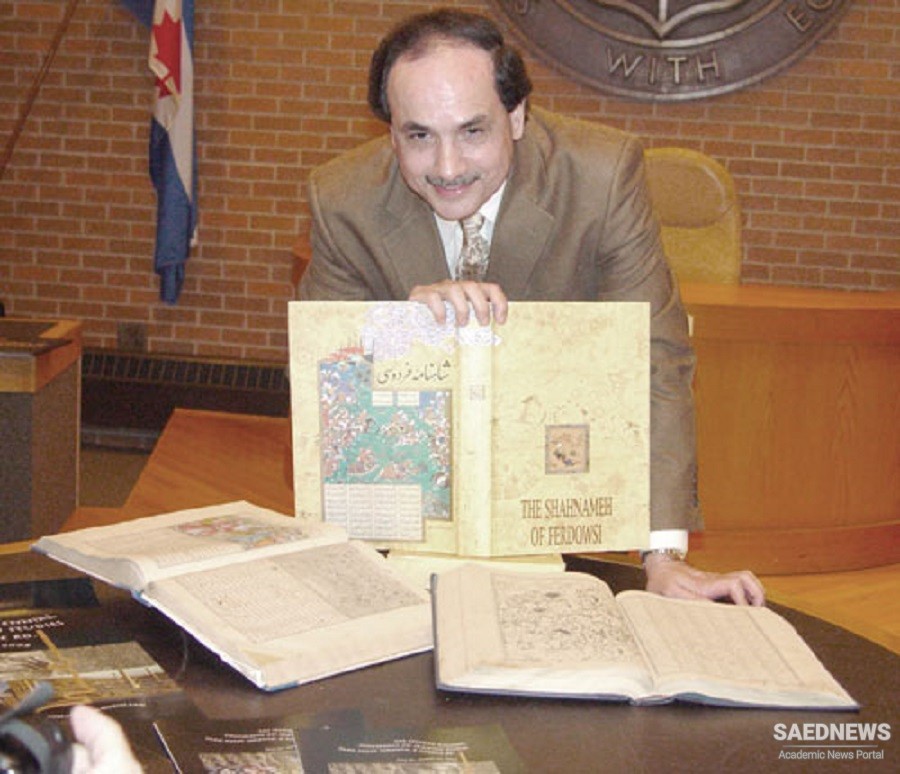Behzad Ranjbaran is known for music which is both evocative and colorful, and also strong in structural integrity and form. He frequently draws inspiration from his cultural roots and Persian heritage in form or subject matter, as exemplified by the tone poems of the “Persian Trilogy”, or the interpretation of sounds and styles in works such as the Violin Concerto and Songs of Eternity.
Ranjbaran’s music has been performed all over the world by soloists such as Joshua Bell, Renée Fleming, Jean-Yves Thibaudet, and Yo-Yo Ma, and conductors including Yannick Nézet-Séguin, Charles Dutoit, Kent Nagano, Marin Alsop, Robert Spano, Gerard Schwarz, JoAnn Falletta, Miguel Harth-Bedoya, Giancarlo Guerrero, David Robertson, and many more. He has also served as composer in residence for the Philadelphia Orchestra’s summer season at Saratoga, the Fort Worth Symphony, and the Cabrillo Festival of Contemporary Music.
Some of his more notable compositions include works for soloist and orchestra. His Flute Concerto was commissioned and premiered by the Philadelphia Orchestra, with Jeffrey Khaner, flute, Yannick Nézet-Séguin, conductor. Songs of Eternity, using text from the Ruba’iyat of Omar Khayyam, was written for soprano Renée Fleming, and premiered with the Seattle Symphony under the direction of Gerard Schwarz. Joshua Bell was the soloist in the premiere performances of his Violin Concerto with the Royal Liverpool Philharmonic Orchestra, also conducted by Schwarz. Mr. Bell went on to give the North American premiere with the Indianapolis Symphony under Mario Venzago, and gave subsequent performances with Peter Oundjian and the Toronto Symphony. His Double Bass Concerto was commissioned and premiered by the Montreal Symphony with Ali Yazdanfar, double bass, Kent Nagano, conductor in 2018. Jean-Yves Thibaudet premiered the Piano Concerto with the Atlanta Symphony, conducted by Robert Spano; Thibaudet and Spano have since also performed it with the Philadelphia Orchestra. In 2018, We Are One for chorus and orchestra on the subject of world peace was premiered by Oratorio Society of New York at Carnegie Hall.
The texts for two choral works also draw directly on Persian culture, as do some of his many chamber works, including Fountains of Fin, a eulogy for Amir Kabir, the 19th century slain Iranian vezir; Shiraz and Isfahan, celebrating two of Mr. Ranjbaran’s favorite cities in Iran; and Enchanted Garden, inspired by the many beautiful gardens of his native land.
Described as “music’s magical realist” (Philadelphia Inquirer) and “a master of the orchestra” (Dallas Morning News), Mr. Ranjbaran’s compositions possess “radiant luminescence” (Washington Post) and “qualities of inherent beauty and strong musical structure that make…a satisfying musical entity” (Nashville Scene). Accolades continue for Songs of Eternity, described in the Fort Worth Star-Telegram as “…enchanting … the piece wielded a peculiar, timeless magic…”; and the Liverpool Echo commented that the Violin Concerto is “high class, cohesive” and “when the concerto…just sings out a fine melodic line, the effect is ravishing.” In describing the “Persian Trilogy” CD, American Record Guide said that “Ranjbaran has composed a noble and brilliantly conceived score, spectacularly orchestrated and filled with memorable tunes, meticulous development, and impressive craftsmanship.”
Recordings include the “Persian Trilogy” on the Delos label by the London Symphony Orchestra, conducted by JoAnn Falletta. This orchestral cycle, comprising the works Seven Passages, Seemorgh, and The Blood of Seyavash, takes its inspiration from ancient Persian legends, as recounted in the 11th century epic poem “Shahnameh” (The Book of Kings). In 2008, the Toronto Symphony Orchestra performed a multimedia performance of the complete Persian Trilogy, with traditional storytelling (Naghali) and projections of Persian miniatures. Ms. Falletta has also conducted Elegy for Cello and Orchestra with soloist Yo-Yo Ma and the Buffalo Philharmonic, reviewed in the Buffalo press as “ethereal…fragile, almost like a mirage.” Among his other recordings is an all-Ranjbaran album of string music on Naxos, including Awaking, String Quartet, Elegy, and more.
Born on July 1, 1955 in Tehran, Iran, Mr. Ranjbaran is the recipient of the Rudolf Nissim Award for his Violin Concerto. His musical education started early when he entered the Tehran Music Conservatory at the age of nine. He came to the United States in 1974 to attend Indiana University and received his doctorate in composition from The Juilliard School, where he currently serves on the faculty.


 Shajarian the King of Iranian Avaz
Shajarian the King of Iranian Avaz














































